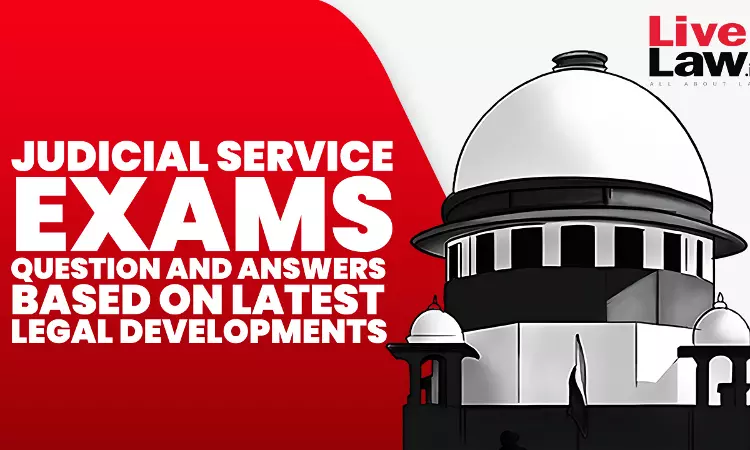Judicial Service Exams: Question And Answers (MCQs) Based On Latest Judgements- PART-2
Suraj Parmar
21 Jan 2024 11:37 AM IST

Next Story
21 Jan 2024 11:37 AM IST
MCQs based on Current SC Judgments- September 2023 21. As far as the comparison between ocular evidence and the opinion of medical experts goes, which statement is correct in this regard?a) Medical expert opinions should always take precedence over eyewitness accounts.b) Ocular evidence should be considered only if it matches the medical expert opinions.c) Ocular evidence holds...
